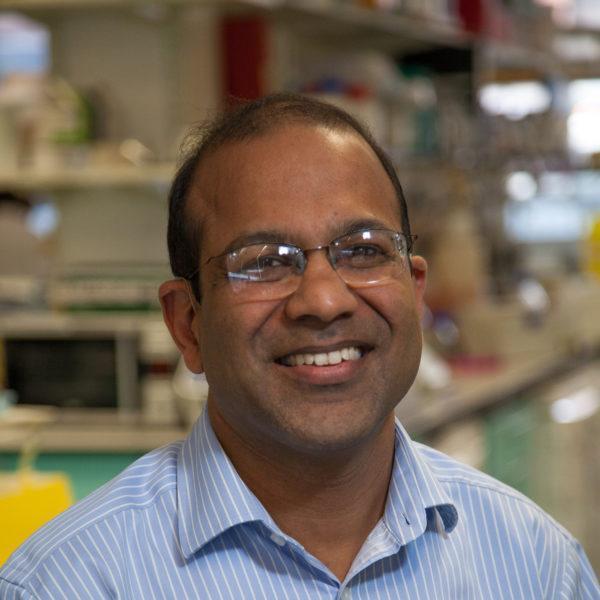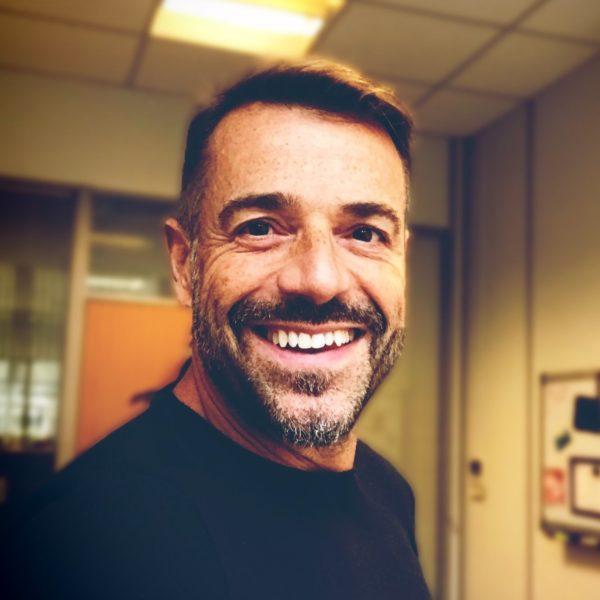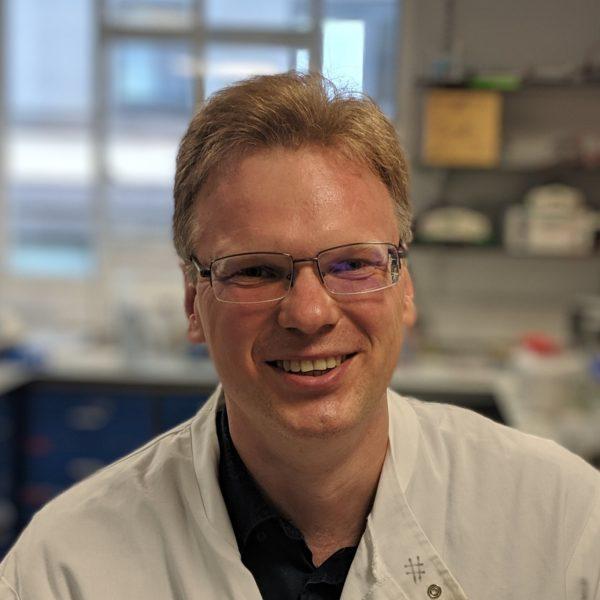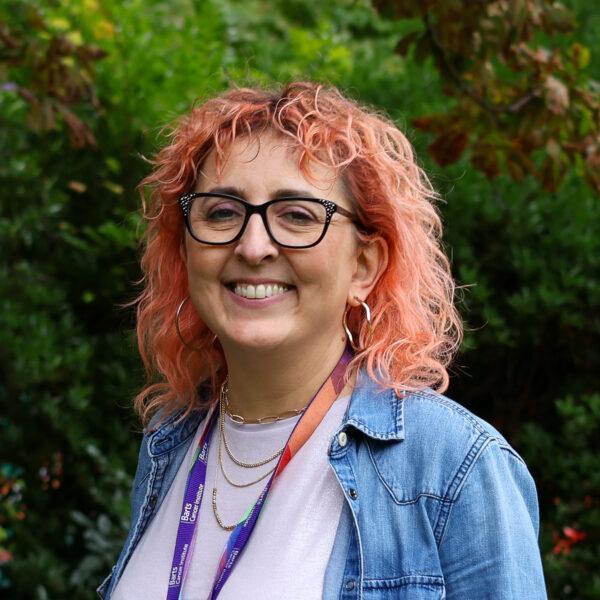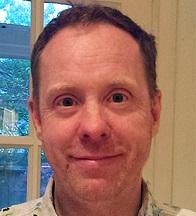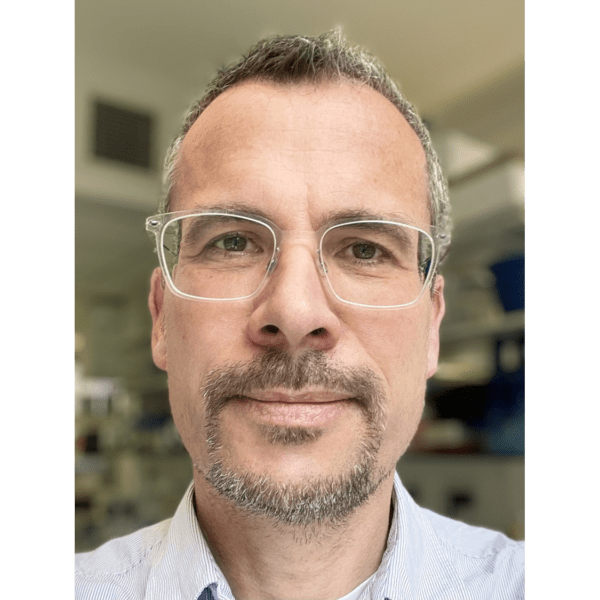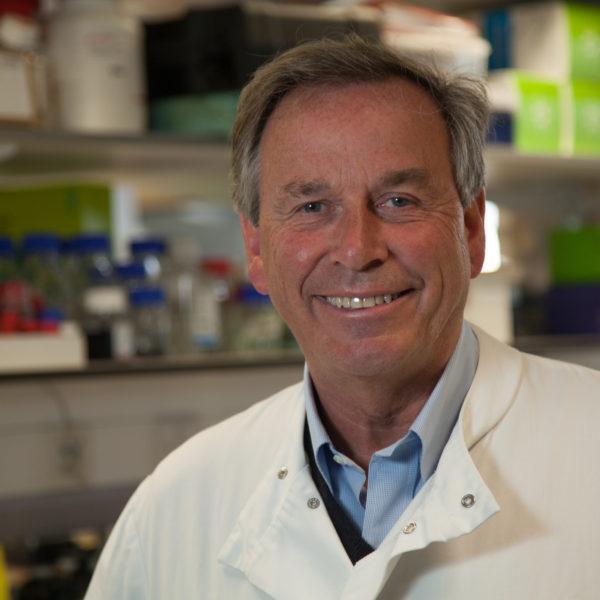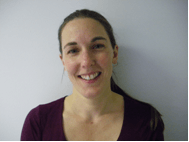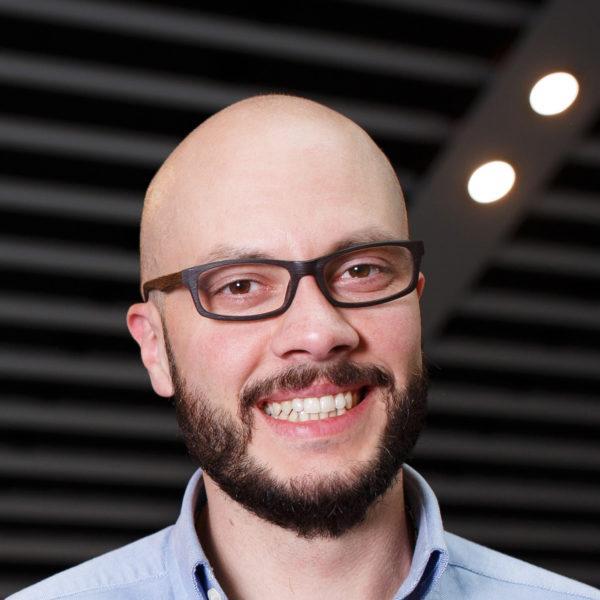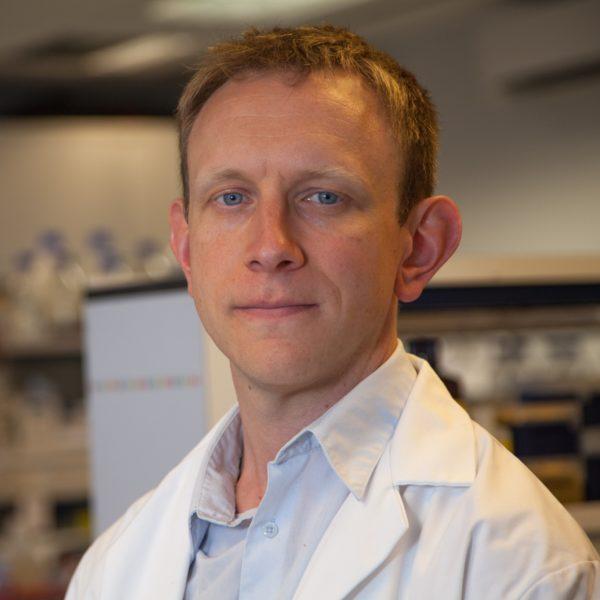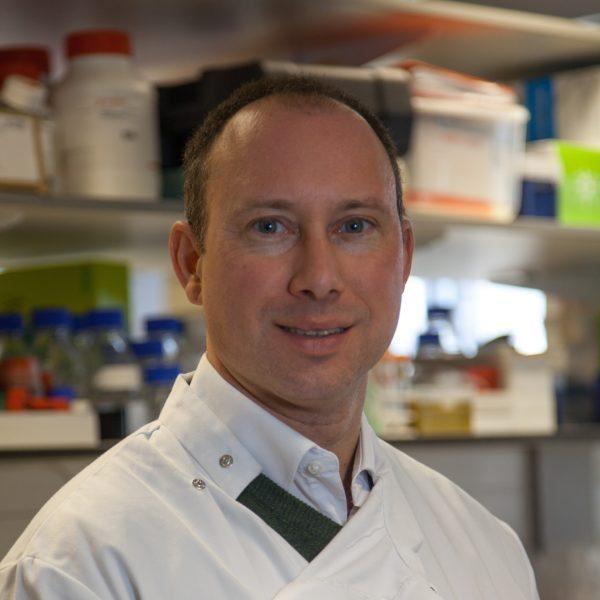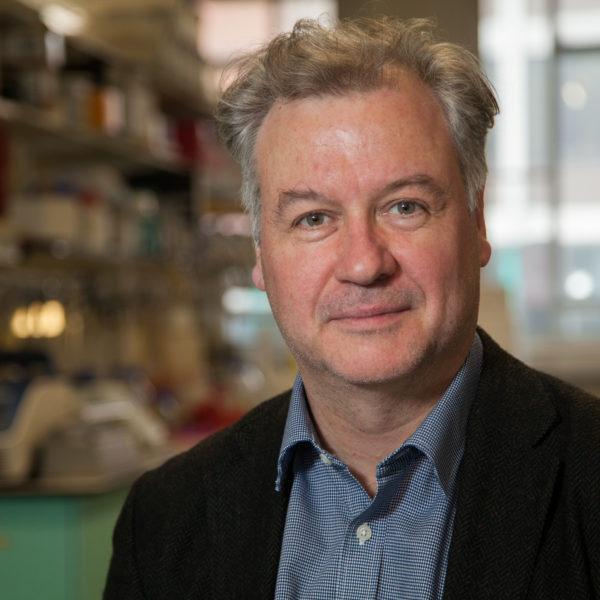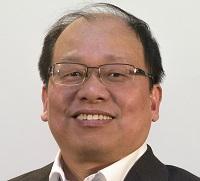Staff Directory
Professor Hemant Kocher
Professor of Liver and Pancreas Surgery
My clinical research interests include tissue banking, clinical trials, innovative surgical techniques, epidemiology, meta-analysis and patient care pathways. My translational research interests include pancreatic cancer stroma and tumour-stroma cross-talk including cell signalling, adhesion, metastasis and invasion.
Professor Tyson V. Sharp
Professor of Cellular and Molecular Biology
My group’s work focuses on the role of the tumour suppressor protein LIMD1 and its family members Ajuba and WTIP and how their deregulation in normal tissue contributes to the development of lung, renal and breast cancer.
Professor Andrejs Braun
Professor of Genome Regulation Director of Education
My group is interested in epigenetic regulation of somatic mutagenesis in normal and malignant B cells. We aim to understand how alterations in the nuclear envelope influence B cell chromatin conformation, and what the epigenetic consequences of these alterations are.
Professor Francesca Ciccarelli
Professor of Cancer Genomics, Barts Cancer Institute Principal Group Leader, Cancer Systems Biology, The Francis Crick Institute
Our group investigates cancer evolution, with a focus on understanding how genetic changes influence disease progression, response to therapy and development of resistance. We particularly concentrate on gastrointestinal cancers such as colorectal, stomach and oesophageal cancer.
Dr Jeff Davies
Reader in Haemato-oncology and Honorary Consultant
My group works on developing novel approaches to improve efficacy and safety of allogeneic stem cell transplantation and adoptive immunotherapy as treatments for blood cancers. We focus on T-cell alloreactivity in the context of stem cell transplantation and immunotherapy.
Dr Samar Elorbany
Clinical Lecturer
My research focuses on improving the response to therapy in ovarian cancer and other gynaecological cancers. The key aims are to understand the immune effects of chemotherapy and identify targets to enhance anti-tumor effects and overcome therapy resistance. The ultimate goal is to take these findings forward to clinical trials and develop better treatment approaches for cancer patients to prolong survival and reduce the risk of relapse.
Professor Marco Gerlinger
Professor of Gastrointestinal Cancer Medicine; Consultant Medical Oncologist and Director of GI Cancer Research at St. Bartholomew's Hospital
We are investigating how drug resistance evolves in bowel and gastro-oesophageal cancers, how these tumour types can be treated more effectively through novel immunotherapies and targeted drugs, and how treatment sensitivity and resistance can be predicted.
Professor John Gribben
Professor of Medical Oncology
My primary research interests include the immunotherapy of cancer (including stem cell transplantation), the identification of B-cell-tumour antigens; and the detection and treatment of minimal residual disease in leukaemia and lymphoma.
Dr Rifca Le Dieu
Clinical Reader
I am the Module Lead for 3 undergraduate Biomedical Science Modules. I am also the Cancer Theme Lead for MBBS with direct responsibility for Year 2 Cancer Week. In addition, I supervise MSc project dissertations.
Dr Luigi Ombrato
Senior Lecturer
My group studies how different populations of immune cells in the tumour microenvironment cross-talk in order to establish a tumour-supportive niche in metastasis. This research aims to identify more effective therapeutic targets in metastatic cancers.
Dr Oliver M. Pearce
Reader in Tumour Extracellular Matrix
The focus of our research is the tumour microenvironment and we are particularly interested in understanding the composition and function of the tumour extracellular matrix in immunosuppression. Cancer types we focus on include ovarian and breast cancers.
Dr John Riches
Clinical Reader in Cancer Immuno-metabolism
My major research interest is understanding the metabolism of chronic lymphocytic leukaemia and lymphoma with the aim that this will underpin the development of the next generation of anti-metabolic drugs for these diseases.
Professor Peter Szlosarek
Professor of Medical Oncology
My main research interest is in exploring why ASS1 is aberrantly expressed in human cancers and how this knowledge may be exploited for anticancer therapy. I lead an active translational programme from bench to bedside of the arginine-depleting agent ADI-PEG20 in several hard-to-treat cancers.
Professor Yaohe Wang
Professor of Cancer Cell and Gene Therapy
We work on cancer prevention and immunotherapy using tumour-targeted replicating oncolytic viruses, in particular focusing on replicating adenovirus and vaccinia virus.
Dr Lucas Baumard
In my research, I examine the response of immune cells to different chemotherapy drugs in order to develop more effective cancer immunotherapy combinations. I use patient-derived organoids (from oesophageal cancer patients), 3D models, T cell co-culture models, flow cytometry, IHC(-F, H&E) and ELISA.
Dr Kirsty Brooksbank
My research is focussed on trying to understand the connection between DNA damage repair deficiency and response to immune checkpoint inhibitors (ICIs). We have a particular focus on investigating the variable response rates to ICIs observed in DNA mismatch repair deficient cancers.
Dr Marta Buzzetti
My research focuses on the use of patient-derived organoid co-cultures and genome wide CRISPR screens to unravel tumour intrinsic gene networks controlling resistance to CD3 bispecific antibodies in colorectal cancer, and possibly applicable to other tumour types.
Dr Louisa Chard
Our research focuses on the use of modified, replicating oncolytic Vaccinia viruses and adenoviruses armed with immune-modulatory genes such as cytokines to create a self-propagating treatment for tumours that results in long-term immunological memory to the tumour cells.
Dr Marta Crespi-Sallan
My research is focused on describing the mechanisms underlying Lamin B1 nuclear disassembly in B-cell normal development and how a dis-regulated Lamin B1 removal pathway could lead to several haematological malignancies within the germinal centre in secondary lymph organs.
Dr Lou Salome Herman
My current research focuses on investigating B and T cell population differences in chronic lymphocytic leukaemia (CLL) mouse models before and after Bruton Tyrosine Kinase (BTK) inhibitor treatments.
Dr Joash Joy
My research focuses on building human tumour models within microfluidic chips that recapitulate features of the tumour microenvironment, such as blood vessels.
Dr Florian Laforets
My research in Prof Balkwill’s group focuses on imaging tumour-associated macrophages and other immune cells in live ex vivo tumour slices, in order to assess their behaviour and the impact of immunotherapies on the live tumour microenvironment.
Dr Beatrice Malacrida
My research focuses on designing 3D in vitro models to understand the contribution of the tumour microenvironment during HGSOC progression.
Dr Eleni Maniati
Lead Bioinformatician
My research project aims to integrate multi-omic molecular and histological data datasets of the microenvironment of HGSOC metastases. This work will allow us to identify key microenvironmental components and pathways that sustain and promote tumours.
Dr Megha Meena
We use novel mass cytometry technology following allogeneic haematopoietic stem-cell transplantation in patients, to define the global landscape of immune-cell populations preceding development of acute graft-versus-host disease (aGvHD) and to identify a dominant immunoregulatory role for subsets of CD56hi NK cells in limiting alloreative T-cell expansion and aGvHD.
Dr Mingyu Ye
My research focuses on Vaccinia virus (VACV) as a candidate for oncolytic virotherapy, an extremely effective strategy that can simultaneously target multiple features of the suppressive tumour microenvironment (TME) in cancer and sensitize the tumours to other forms of immune or traditional therapeutics.
Dr Zuoyi Zhao
My research is focused on cancer immunotherapy for pancreatic cancer, particularly immune-stimulatory molecules, armed oncolytic viruses and CAR T-cells.

